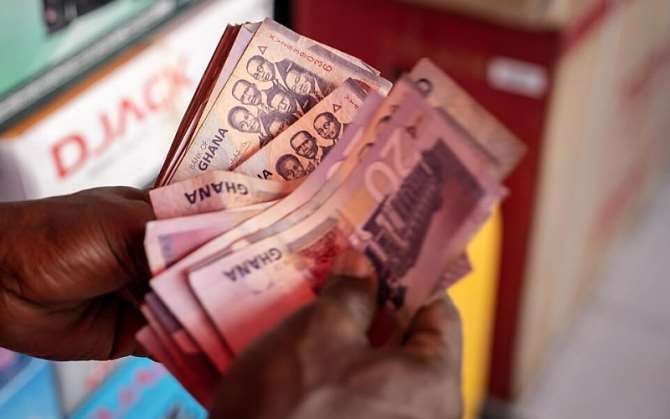The newly implemented 10% increase in the daily minimum wage in Ghana, while seemingly a positive step, falls drastically short of providing any substantial relief for workers struggling amidst soaring inflation and a depreciating currency. Announced by the National Tripartite Committee (NTC) on February 20, 2025, the increment aims to address the rising cost of living and ensure fair compensation. However, with inflation currently at 23.5%, the increase translates to a real-terms decrease in purchasing power for minimum wage earners. This means that the cost of essential goods and services is outpacing wage growth, leaving workers worse off than before the purportedly beneficial adjustment. The average Ghanaian worker relying on the minimum wage for survival will continue to face significant challenges in affording basic necessities like transportation, food, and utilities.
The devaluation of the Ghanaian cedi further exacerbates the issue. In January 2024, the old minimum wage of GH¢18.15 was equivalent to US$1.51. Despite the 10% increase to GH¢19.97, the current value in US dollars is only US$1.29, a significant decline. This starkly illustrates the erosive impact of currency depreciation on the real income of minimum wage workers. The meager increment not only fails to mitigate the effects of inflation but also renders workers increasingly vulnerable to the rising cost of living, effectively diminishing their ability to afford basic necessities.
Furthermore, the new minimum wage remains significantly below the international poverty line. The World Bank defines extreme poverty as living on US$2.15 or less per day, equivalent to GH¢33.3. Even with the 10% increase, Ghanaian minimum wage earners still fall far below this threshold, trapped in a cycle of poverty. This highlights the inadequacy of the increment in addressing the fundamental economic challenges faced by a significant portion of the population. The intended improvement fails to lift workers out of poverty, raising concerns about the government’s ability to address the persistent economic hardships faced by its most vulnerable citizens.
Adding to the complexity of the situation is the government’s decision to implement a parallel 10% increase in the base pay for public sector workers. While ostensibly aligned with the minimum wage increase, this move further strains the already precarious national budget. Ghana is currently operating under an IMF bailout program due to a substantial debt burden and limited fiscal space. The increased wage bill, which already consumes approximately 36% of total government revenue, will inevitably rise further with this new increment, potentially exacerbating the country’s financial woes and limiting its ability to invest in other critical areas such as education, healthcare, and infrastructure development.
President John Dramani Mahama, acknowledging the insufficiency of the increment, appealed to organized labor for understanding, citing the challenging economic circumstances. He offered a promise of future increases should the economic situation improve. This plea underscores the government’s precarious position, caught between the need to address worker concerns and the constraints imposed by the ongoing economic crisis. The situation highlights the delicate balancing act required to navigate the competing demands of economic stability and social welfare.
The communique announcing these increments was signed by representatives of the government, employers, and organized labor, reflecting the tripartite nature of the decision-making process. Dr. Abdul-Rashed Hassan Pelpuo, Minister of Labour, Jobs and Employment, represented the government; Dr. Emmanuel Adu-Sarkodee, President of the Ghana Employers’ Association (GEA), represented employers; and Mr. Joshua Ansah, Secretary-General of the Ghana Trades Union Congress (TUC), represented organized labor. This collaborative approach, while demonstrating a commitment to dialogue, ultimately yielded a solution that fails to adequately address the pressing economic realities faced by minimum wage earners in Ghana. The consensus reached underscores the difficult choices facing the nation as it grapples with its economic challenges.


